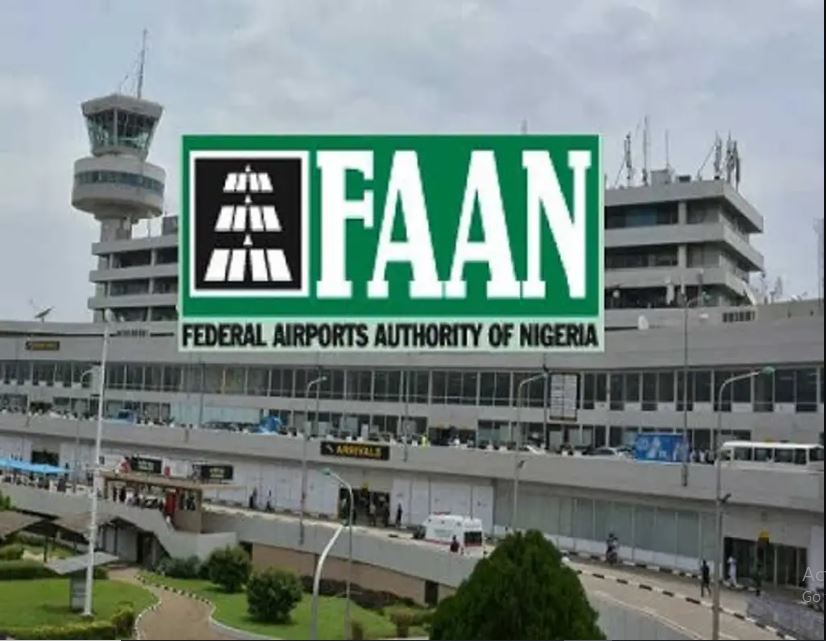In the 25 months since President Bola Ahmed Tinubu assumed office, Nigeria’s aviation sector has recorded remarkable progress—driven by the focused leadership of Festus Keyamo, SAN, Minister of Aviation and Aerospace Development. His dynamic approach has introduced meaningful, people-focused reforms that continue to enhance the daily operations of the ministry and earn him plaudits from stakeholders across the country, including President Tinubu himself.

In a move to build on these achievements, President Tinubu recently inaugurated a new Board for the Federal Airports Authority of Nigeria (FAAN), chaired by Dr. Abdullahi Umar Ganduje, a seasoned administrator and former APC National Chairman. Ganduje’s appointment is seen as a strategic choice to boost FAAN’s operational efficiency and align it with the broader goals of the Renewed Hope Agenda.
Ganduje’s Vision for FAAN
As Chairman of FAAN’s Board of Directors, Ganduje is expected to provide visionary leadership aimed at revitalizing the agency. His early remarks emphasize the importance of financial self-sufficiency, service excellence, and workforce motivation. He has promised to introduce innovative ideas that can diversify the agency’s revenue base beyond its annual government allocations.
Drawing from his extensive experience in public service—as a former governor, deputy governor, and civil servant—Ganduje is poised to guide FAAN toward becoming a more vibrant, result-oriented, and self-sustaining institution. He has stressed the importance of aligning the board’s strategies with global best practices while remaining grounded in the statutory responsibilities outlined in the FAAN Act.

Strategic Focus Areas
The new Board plans to undertake a comprehensive review of FAAN’s operations and benchmark them against global standards. This includes exploring alternative revenue streams such as advertising, retail, and real estate within airport environments—strategies widely adopted by leading aviation authorities around the world.
Additionally, the Board aims to streamline FAAN’s internal operations by introducing cost-saving initiatives and investing in digital infrastructure to enhance airport management and customer service.
A key component of the reform strategy is a strong push toward Public-Private Partnerships (PPPs), with the goal of attracting private investment and expertise. This approach is expected to unlock new capital inflows and foster innovation while creating opportunities for indigenous investors.
Commitment to Collaboration and Good Governance
At the inauguration of the Board, Ganduje reaffirmed his commitment to work collaboratively with the management of FAAN and the Ministry of Aviation and Aerospace Development. “We will support the ministry in every way to ensure the progress of FAAN,” he stated. He also underscored the importance of respecting the legal boundaries of the Board’s functions while avoiding mediocrity or overreach.

Ganduje acknowledged the common friction between boards and executive management in public institutions but assured that under his leadership, the FAAN Board would maintain harmony, guided by professionalism, accountability, and service delivery. “We are fully conscious of our roles and limitations,” he said, “and we will act within the provisions of the law to deliver results without compromising efficiency.”
A Board with Diverse Competence
The new FAAN Board comprises professionals with a broad range of expertise in public administration, finance, and the private sector. Collectively, they are expected to bring a wealth of experience to the table, ensuring that policy decisions are informed, strategic, and aligned with both national interests and international standards.
Recognizing that air travelers and industry stakeholders expect nothing less than excellent service, Ganduje has vowed that the Board will be transparent, dedicated, and focused on improving user experiences. “Service delivery is the core of FAAN’s mandate,” he emphasized, “and we must rise to meet international benchmarks, as Nigeria is watched closely by the global community.”

Conclusion
The reforms and initiatives envisioned by the Ganduje-led Board, if successfully implemented, could mark a turning point for Nigeria’s aviation sector—enhancing its global image, driving economic growth, and reinforcing the country’s leadership in African air travel.
With renewed commitment to transparency, innovation, and operational efficiency, the Federal Airports Authority of Nigeria appears set for a new era of transformation under the leadership of Dr. Umar Ganduje.




